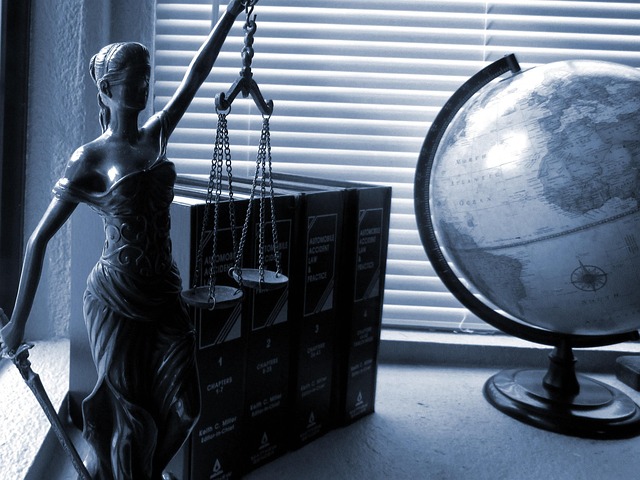Tech companies face stringent global antitrust scrutiny, requiring vigilance and proactive strategies to avoid costly litigation. They must navigate complex legal landscapes by understanding evolving laws targeting data sharing, mergers, and algorithms. Internal audits, transparent models, employee training, and anticipatory disclosure policies are vital defenses. Crafting robust legal arguments tailored to high-stakes cases can aim for charge dismissal. Successful outcomes demand robust white-collar defense strategies for long-term market viability.
In the dynamic tech industry, navigating regulatory compliance issues is paramount. This comprehensive guide delves into critical aspects of antitrust laws, identifying common pitfalls that often trap tech companies. We explore effective defense strategies to fortify against potential antitrust litigation. Understanding the settlement and litigation process, complete with practical insights, empowers tech firms to anticipate and mitigate risks. Discover expert advice tailored for navigating the complex landscape of antitrust litigation strategies for tech companies.
- Understanding Antitrust Laws in Tech Industry
- Common Compliance Pitfalls for Tech Companies
- Crafting Effective Defense Strategies
- Navigating Settlement & Litigation Process
Understanding Antitrust Laws in Tech Industry
The tech industry’s rapid growth has brought it under increased scrutiny from antitrust regulators worldwide. Understanding antitrust laws is critical for tech companies to navigate this complex landscape, especially with the potential for significant penalties and reputational damage in high-stakes cases. These laws are designed to promote competition, prevent market dominance, and protect consumers from monopolistic practices. In recent years, antitrust litigation strategies for tech giants have evolved significantly, focusing on various aspects of their business models, including mergers, data sharing agreements, and algorithmic decision-making processes.
Throughout all stages of the investigative and enforcement process, tech companies must be vigilant in monitoring regulatory developments and adapting their practices accordingly. A robust general criminal defense strategy can help mitigate risks associated with antitrust violations, ensuring compliance with evolving legal frameworks. By staying proactive and implementing transparent business practices, tech industry leaders can minimize the chances of becoming embroiled in costly litigation, thereby fostering a more competitive and innovative market environment.
Common Compliance Pitfalls for Tech Companies
Tech companies often face unique regulatory compliance challenges due to the dynamic nature of their operations and the highly regulated sectors they inhabit. A common pitfall is non-compliance with antitrust laws, which can lead to costly litigation. With the tech industry’s rapid growth, especially in areas like data collection, algorithms, and online platforms, regulators are increasingly scrutinizing these practices. Antitrust litigation strategies for tech companies must be robust and adaptive to navigate complex legal landscapes.
Many high-stakes cases across the country have resulted from alleged anti-competitive behaviors, such as market monopolization or the abuse of dominant positions. Tech firms must be vigilant in understanding and adhering to antitrust regulations to avoid becoming targets of these challenging defenses. Proactive compliance measures, including rigorous internal audits, comprehensive employee training, and regular legal consultations, can help mitigate risks. By staying ahead of regulatory trends and developing effective litigation strategies, tech companies can enhance their chances of winning challenging defense verdicts and ensuring long-term success in an ever-changing digital landscape.
Crafting Effective Defense Strategies
Navigating Regulatory Compliance Issues is a complex task, especially for tech companies facing Antitrust Litigation Strategies. An effective defense strategy starts with understanding the evolving legal landscape and anticipatory measures. Tech firms should conduct thorough internal audits to identify potential non-compliance areas, focusing on data privacy, algorithmic bias, and market dominance. Proactive disclosure policies and transparent communications with regulators can also mitigate risks during all stages of the investigative and enforcement process.
Additionally, crafting robust legal arguments tailored to high-stakes cases is crucial. By presenting a compelling case for competitive market forces driving innovation, tech companies can aim for a complete dismissal of all charges. This involves meticulous document review, expert witness preparation, and strategic decision-making to challenge the underlying assumptions in antitrust lawsuits.
Navigating Settlement & Litigation Process
Navigating the settlement and litigation process is a complex challenge for tech companies facing antitrust litigation. These cases often involve intricate legal strategies, requiring deep understanding of both industry dynamics and regulatory landscapes. Effective antitrust litigation strategies for tech companies must balance aggressive defense with thoughtful negotiation, recognizing the delicate nature of these cases.
Successful outcomes in antitrust lawsuits demand a robust white-collar defense approach. Tech firms should prepare for prolonged legal battles, where achieving extraordinary results may hinge on presenting compelling arguments, amassing comprehensive evidence, and crafting innovative solutions. Ultimately, navigating this process successfully can lead to favorable settlements or winning challenging defense verdicts, ensuring the company’s long-term viability and reputation in a competitive market.
In navigating the complex landscape of antitrust laws, tech companies must stay proactive and informed. By understanding common compliance pitfalls and crafting effective defense strategies, organizations can mitigate risks associated with antitrust litigation. The process involves careful consideration, transparency, and a proactive approach to regulatory changes, ensuring tech businesses thrive while adhering to legal requirements. Adopting innovative strategies now can help tech firms avoid costly settlements and foster a sustainable competitive environment for the industry in the future.






